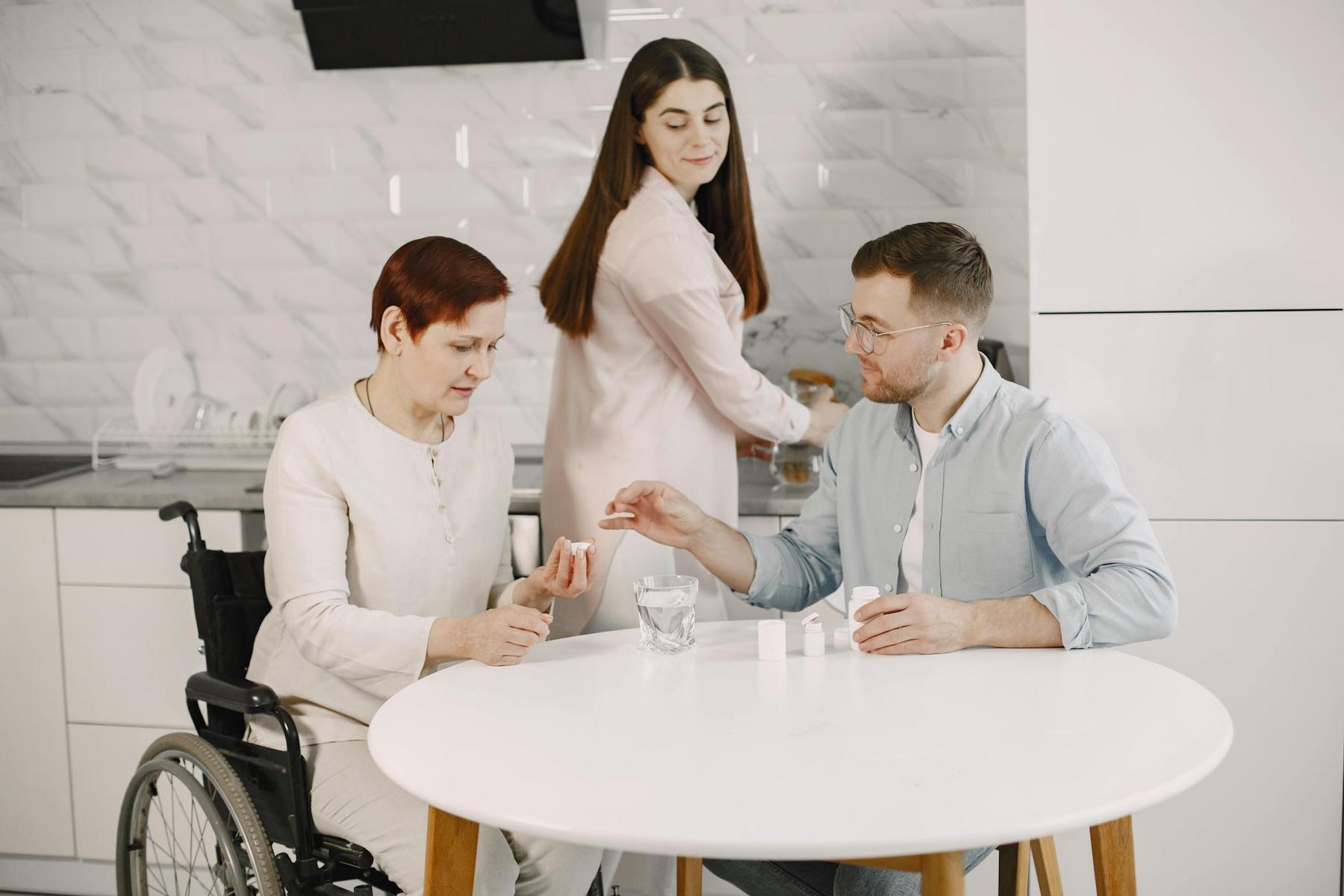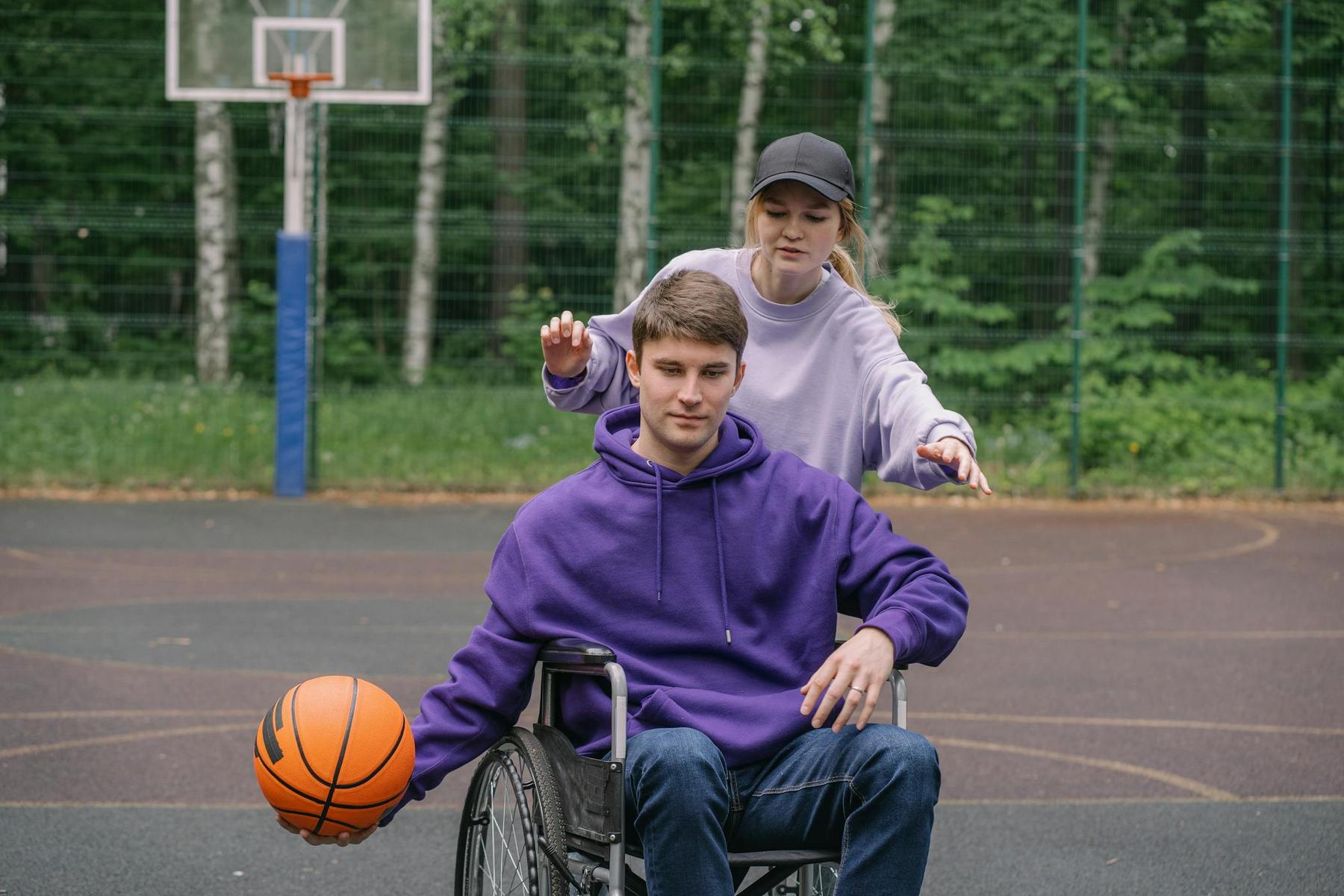Every 11 minutes, someone in Australia experiences a stroke. Every four minutes, another person is hospitalised with a head injury. Behind these statistics are thousands of Queenslanders and their families facing the profound challenge of living with acquired brain injury (ABI), stroke recovery, or multiple sclerosis (MS). In Cairns and throughout Queensland, more than 74,300 residents navigate daily life with an acquired brain injury, whilst stroke affects over 440,000 Australians nationwide. The journey from diagnosis to quality of life isn’t walked alone—yet finding the right neurological disability support can feel overwhelming when you’re already facing cognitive challenges, mobility limitations, or the uncertainty of a progressive condition. For families in Far North Queensland, understanding what support exists locally and how to access it represents a crucial first step toward empowerment and independence.
What Types of Neurological Disabilities Require Specialised Support in Cairns?
Neurological disabilities encompass a diverse range of conditions affecting the brain, spinal cord, and nervous system. In Cairns and Brisbane, Advanced Disability Management supports individuals living with three primary neurological conditions: acquired brain injury, stroke, and multiple sclerosis.
Acquired brain injury affects over 700,000 Australians who experience daily activity limitations and participation restrictions. Three-quarters of people with brain injury are men, and remarkably, two out of every three acquired their injury before age 25. In Queensland alone, 2.6% of the population lives with ABI, with causes ranging from traumatic injuries (34.9% of cases) to stroke (28.9%) and non-traumatic brain injuries (26%). The impact varies significantly depending on injury location and severity, but commonly includes physical impairments such as weakness and loss of coordination, cognitive difficulties with memory and concentration, communication challenges, and emotional changes that affect personality and mood.
Stroke survivors represent another substantial population requiring ongoing support. With approximately 45,785 stroke events occurring across Australia in 2023, one in four strokes now affects people under 65 years of age. Regional Australians face a 17% higher likelihood of suffering a stroke compared to metropolitan residents—a statistic that holds particular significance for Cairns and Far North Queensland. The aftermath of stroke often includes paralysis or weakness, swallowing difficulties, speech and language impairments, vision loss, and profound fatigue. Approximately half of all stroke survivors live with disability affecting their daily life, with 30 of every 100 stroke patients dying in the first year and 35 remaining permanently disabled at one year.
Multiple sclerosis represents the most common neurological cause of disability affecting young adults in Australia. As of 2021, 33,335 Australians were living with MS—a staggering 56.6% increase from 2010. Three times more women than men develop MS, typically diagnosed between ages 20 to 40. Queensland’s age-standardised prevalence has doubled from 45.9 per 100,000 in 2010 to 99.1 per 100,000 in 2021. MS symptoms vary widely but commonly include numbness or weakness in limbs, tingling sensations, lack of coordination, vision problems, vertigo, fatigue (affecting 78% of individuals), mobility issues (76%), and memory difficulties (68%).
How Can Neurological Disability Support Services Transform Daily Living?
Comprehensive neurological disability support extends far beyond basic care—it encompasses a holistic approach to rebuilding independence, dignity, and quality of life. Advanced Disability Management provides personalised support across multiple dimensions of daily living, recognising that each person’s neurological journey is unique.
Supported independent living represents a cornerstone of meaningful disability support. This NDIS-funded assistance helps individuals with neurological disabilities maintain their own homes whilst receiving necessary support with cooking, cleaning, personal hygiene, medication management, and household tasks. Support arrangements range from occasional assistance to 24/7 care, depending on individual needs and goals. For someone recovering from stroke or managing progressive MS symptoms, this flexible approach means maintaining autonomy whilst accessing the help required to live safely and comfortably.
Personal care services address the intimate daily activities that neurological conditions often impact. Trained support workers assist with bathing, dressing, grooming, continence management, and mobility support—always delivered with dignity and respect for personal preferences. For individuals experiencing weakness, coordination difficulties, or cognitive challenges, this compassionate assistance removes barriers to maintaining personal hygiene and presentation, which significantly impacts self-esteem and social participation.
Life skills development takes a capacity-building approach, empowering individuals to develop or regain abilities affected by their neurological condition. Occupational therapists and support workers collaborate on goal-directed programmes addressing cognitive strategies, communication techniques, money management, meal planning, and community navigation. This approach recognises that improvement can continue for years after stroke or ABI, particularly when supported by ongoing, purposeful intervention.
Transportation assistance breaks down one of the most significant barriers to community participation. Support workers provide accompanied transport to medical appointments, social activities, employment, and recreational pursuits. For regional Queenslanders in Cairns where public transport options may be limited, accessible transportation support becomes essential for maintaining connections beyond the home environment.
High-intensity daily personal activities encompass the more complex support needs that some individuals with severe neurological disabilities require. This might include bowel management programmes, pressure care for those with limited mobility, management of medical equipment, specialised feeding support, or behaviour support for those with cognitive and emotional regulation difficulties following brain injury.
What Role Does the NDIS Play in Neurological Disability Support?
The National Disability Insurance Scheme fundamentally transformed disability support in Australia, providing individualised funding for eligible Australians under 65 with significant, lifelong disabilities. Understanding NDIS eligibility and access represents a critical step for many individuals with neurological conditions in Cairns and Brisbane.
As of 30 June 2023, 18,045 active NDIS participants identified acquired brain injury as their primary disability—representing 3% of the scheme’s 610,502 total participants. Notably, 80% of ABI participants were aged 35 years and over, with 66% male and 54% reporting low levels of function. Queensland accounted for 23% of all NDIS ABI participants. The scheme provided $2.41 billion in paid supports to ABI participants in the year ending 30 June 2023—a 26% increase from the previous year, reflecting both growing participant numbers and increasing complexity of need.
NDIS eligibility requires meeting specific criteria: the disability must be acquired before age 65, have permanent and significant impact on functioning or participation, and be likely to be lifelong. For ABI applicants aged 25 and over, the access rate was 79% in the year ending 30 June 2023, compared to 87% for those under 25. This age-related difference reflects the challenges in proving permanence of disability for older applicants.
Stroke survivors face particular barriers to NDIS access. Despite approximately 440,000 Australians living with stroke, only 5,160 people nominated stroke as their primary disability in 2020—approximately 1% of stroke survivors. This dramatic under-representation stems from two key factors: 61% of stroke events occur in people over 65 (above the NDIS age threshold), and many stroke-related disabilities are partial or “hidden” cognitive and communication impairments that may not meet the “permanent and significant” threshold during the critical first six months.
| Neurological Condition | Australian Prevalence | NDIS Participants | Key Challenges |
|---|---|---|---|
| Acquired Brain Injury | 700,000+ with daily limitations | 18,045 (3% of NDIS) | Proving permanence in first 6 months; “hidden” cognitive disabilities |
| Stroke | 440,481 survivors (2023) | ~5,160 (1% of NDIS) | 61% occur over age 65; partial disabilities often don’t meet threshold |
| Multiple Sclerosis | 33,335 (2021, increasing 7.3% annually) | Growing representation | Progressive conditions require ongoing reassessment; functional decline can be gradual |
NDIS plans fund three main support categories: capacity-building supports (allied health therapies, skill development), core supports (daily living assistance, personal care, transport), and capital supports (home modifications, assistive technology). For neurological disability support in Cairns, participants work with support coordinators to implement their plans, accessing local providers like Advanced Disability Management who understand the specific challenges of brain injury, stroke recovery, and MS management.
What Rehabilitation and Allied Health Services Support Neurological Recovery?
The journey of neurological recovery and adaptation requires coordinated, multidisciplinary support extending well beyond initial hospital treatment. Evidence demonstrates that the first six months post-injury represent a critical window for neuroplasticity and functional improvement, yet meaningful recovery can continue for years when supported by appropriate, ongoing intervention.
Physiotherapy and exercise physiology form essential pillars of neurological rehabilitation. For stroke survivors, task-specific training—practising real-life movements repeatedly—harnesses the brain’s neuroplasticity to rebuild motor pathways. Intensity matters significantly: functional improvement requires sustained, purposeful therapy. Physiotherapists specialising in neurological conditions address strength building, balance and coordination training, gait retraining, spasticity management, and fall prevention strategies. For individuals with progressive MS, exercise programmes provide evidence-based benefits in maintaining mobility and managing fatigue, though programmes must be carefully tailored to avoid overexertion during relapse periods.
Occupational therapy supports the practical activities that give life meaning and structure. Occupational therapists assess and address challenges with cooking, cleaning, dressing, work tasks, and leisure activities. They prescribe assistive equipment, recommend home modifications, and teach adaptive strategies that compensate for cognitive or physical limitations. For someone with ABI experiencing planning and sequencing difficulties, occupational therapy might involve breaking complex tasks into manageable steps, using visual schedules, or establishing environmental cues that support independence.
Speech pathology addresses the profound communication and swallowing difficulties that commonly follow stroke and brain injury. Communication support ranges from rebuilding speech and language abilities to introducing alternative communication systems for those with severe impairments. Swallowing assessment and management (dysphagia therapy) prevents the life-threatening complications of aspiration pneumonia whilst maintaining the dignity and pleasure of safe oral intake.
Psychology and counselling address the often-overlooked emotional and cognitive dimensions of neurological disability. Depression affects a significant proportion of stroke survivors and individuals with MS. Acquired brain injuries can dramatically alter personality, impulse control, and emotional regulation. Psychologists provide evidence-based interventions for anxiety, depression, adjustment to disability, and behaviour support. They work with families navigating grief and changed relationships, and support individuals rebuilding identity and purpose after life-altering neurological events.
Support coordination represents a crucial service helping individuals navigate the complexity of NDIS plans and the disability service landscape. Support coordinators connect participants with appropriate providers, monitor service delivery, and advocate for plan reviews when needs change. In regional areas like Cairns where service awareness may be limited, support coordination bridges the gap between funding approval and actual service access.
How Do Supported Accommodation Options Meet Complex Neurological Needs?
For individuals with significant neurological disabilities requiring ongoing support, accommodation options extend beyond traditional living arrangements to purpose-built, supported environments designed around accessibility and 24/7 care availability.
Specialist Disability Accommodation (SDA) provides NDIS-funded housing for participants with extreme functional impairment or very high support needs. These purpose-built or extensively modified homes incorporate ceiling hoists, accessible bathrooms, wide doorways and circulation spaces, assistive technology integration, and other features that remove environmental barriers to independence. Queensland offers over 120 SDA homes across the southeast region, with growing availability in regional centres. It’s crucial to understand that SDA funding covers the physical dwelling and its accessibility features—not the daily support services that residents require.
Supported Independent Living (SIL) funding addresses those daily support services. SIL provides assistance with personal care, medication management, meal preparation, household tasks, and community access—delivered by trained support workers who understand neurological disability support requirements. The flexibility of SIL arrangements means individuals might receive overnight or 24/7 support in a shared house with other residents, or occasional assistance in their own home or apartment. For someone with progressive MS experiencing increasing fatigue and mobility limitations, SIL might begin with a few hours weekly assistance and gradually increase as functional needs change.
Advanced Disability Management delivers supported independent living across Cairns and Brisbane with a deeply personalised approach. Support workers receive training in neurological conditions, understanding that someone with brain injury might require prompting and structure for cognitive challenges, whilst someone post-stroke needs physical assistance with transfers and mobility. This specialisation matters profoundly when delivering intimate personal care to individuals who may have communication difficulties, cognitive impairments, or emotional vulnerability following their neurological event.
Short-term accommodation and respite services provide crucial breaks for both individuals with disabilities and their family carers. Respite might involve a few days in supported accommodation whilst primary carers take a holiday, or regular overnight stays to maintain carer wellbeing and prevent burnout. These services recognise that sustainable, long-term disability support requires attending to the whole support network—not just the person with disability.
Why Does Location Matter for Neurological Disability Support Services?
Regional Queenslanders face distinct challenges accessing specialised disability services, making local provider availability in Cairns particularly significant. Research confirms that regional Australians are 17% more likely to suffer stroke than metropolitan residents, yet service availability often concentrates in major cities. Travel distances to Brisbane for specialist appointments, limited availability of neurologists and rehabilitation specialists in regional areas, and reduced therapy service frequency all impact recovery outcomes and ongoing quality of life.
Advanced Disability Management’s presence in both Cairns and Brisbane addresses this geographic disparity. Individuals in Far North Queensland access the same quality of neurological disability support, staff expertise, and service range as those in southeast Queensland—without the burden of travel for basic daily support services. This local availability matters profoundly when someone requires physiotherapy twice weekly, regular speech pathology, or daily supported independent living assistance. The logistics of travelling to Brisbane for such services would render them practically inaccessible for most families.
The Cairns region’s demographics add further complexity to neurological disability support needs. A significant retiree population means higher stroke prevalence, yet these individuals typically fall outside NDIS eligibility due to the age 65 threshold. Diverse cultural communities, including substantial Indigenous populations, require culturally sensitive support approaches. The tropical climate and outdoor lifestyle priorities of Far North Queensland residents influence rehabilitation goals and community participation aspirations. A quality local provider understands these regional nuances, tailoring support approaches to the community they serve.
Telehealth has expanded access to some specialist services, particularly for consultations, therapy reviews, and support coordination. However, hands-on personal care, physical assistance with mobility, home modifications, and community access support require physical presence. The combination of local support workers delivering daily care alongside occasional telehealth specialist consultations represents the practical reality of regional neurological disability support.
Moving Forward with Confidence and Support
Neurological disability support in Cairns has evolved dramatically with NDIS implementation and growing recognition of the lifelong support needs following brain injury, stroke, and MS diagnosis. Yet significant gaps remain—particularly for stroke survivors over 65, individuals with “hidden” cognitive disabilities who struggle to prove NDIS eligibility, and families navigating complex service systems whilst managing their own adjustment to changed circumstances.
Quality neurological disability support recognises that numbers and statistics represent individual human experiences of loss, adaptation, and gradual rebuilding. It acknowledges that someone experiencing their first MS relapse faces entirely different needs than someone managing secondary progressive MS after 15 years. It understands that the young tradie with traumatic brain injury following a motor vehicle accident requires different support approaches than the executive recovering from stroke.
The evidence consistently demonstrates that early intervention, therapy intensity, multidisciplinary approaches, and ongoing community support significantly influence long-term outcomes. Improvement can continue for years beyond the initial six-month period often cited as the “recovery window”—particularly when individuals access consistent, purposeful rehabilitation embedded within their daily lives. This is where supported independent living, delivered by trained staff who understand neurological conditions, transforms from basic care into active rehabilitation and capacity building.
For families in Cairns and Brisbane navigating the overwhelming early months after diagnosis, understanding that comprehensive support exists locally—delivered by providers who genuinely understand neurological disability—provides hope alongside practical assistance. The journey from diagnosis to quality of life contains many challenges, but no one needs to walk it alone.
How quickly should I access neurological disability support services after a stroke or brain injury diagnosis?
Research demonstrates that early intervention during the first six months produces the strongest functional improvements due to neuroplasticity—the brain’s ability to reorganise and form new neural connections. Even if you don’t yet have NDIS approval, support coordinators can help navigate applications whilst you access available services through other funding. For progressive conditions like MS, establishing relationships with disability support providers during periods of stability means support structures are ready when relapses occur or functional decline progresses.
Can I access neurological disability support services in Cairns if I’m over 65 and therefore not eligible for NDIS?
Whilst NDIS eligibility ends at age 65, other support options exist. The Commonwealth Home Support Programme provides subsidised in-home assistance, and Home Care Packages deliver varying levels of support based on assessed needs. Many providers, including Advanced Disability Management, offer services regardless of the funding source. It’s important to discuss your specific situation with providers to explore all available options.
What’s the difference between supported independent living and specialist disability accommodation for neurological conditions?
Specialist Disability Accommodation (SDA) refers to the purpose-built or modified physical dwelling with accessibility features like ceiling hoists and accessible bathrooms. Supported Independent Living (SIL) refers to the support services provided—such as personal care, meal preparation, and daily assistance—delivered in any accommodation setting. Often, individuals may receive SDA funding for housing and SIL funding for the support services within that housing.
How do I know if my cognitive difficulties after stroke or brain injury are significant enough for NDIS support?
If you’re experiencing memory problems, attention difficulties, reduced problem-solving abilities, or challenges with executive functions that significantly impact daily living, you likely meet the criteria. Obtaining a neuropsychological assessment and functional capacity evaluations from occupational therapists can provide objective evidence of your challenges. Support coordinators with experience in neurological disabilities can guide you through this process.
Can neurological disability support services help me return to work after a brain injury or stroke?
Yes, many services can assist with returning to work. Occupational therapists conduct workplace assessments, recommend necessary modifications, and develop gradual return-to-work plans. However, a realistic assessment of your cognitive and physical abilities is vital. Quality support providers help explore work-related options without setting unrealistic expectations during your recovery.



